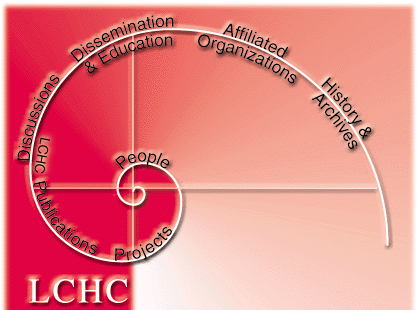
|
The Alexander Romanovich Luria Site |
|
Dear Friends and Colleagues
It is with profound sadness that we have learned of the death of Vladimir Petrovich Zinchenko. We deeply regret that we cannot be with you to honor him and to mourn his passing. For more than 50 years he has been our friend, as well as our teacher, our sputnik, in the exploration of human nature and the search for more humane forms of human existence. Our friendship began in the dark years of the Cold War. Despite the difficulties of scientific collaboration and the dangers of allowing friendships to develop, he always found means for enabling both serious scientific research and equally serious personal caring and engagement. He was a man of courage whose sense of humor, no less than his humane scholarship carried out in extraordinarily difficult circumstances, we will never forget. The freedom allowed by perestroika and then the disintegration of the Soviet Union had a profound effect on the possibilities of international cooperation. It was a great pleasure and privilege for us to be able to welcome Volodya in our homes and at our universities where he was free to explore the many topics that were too dangerous to approach in prior years. It was during this period that Volodya was able to write copiously about his deep understanding of the implications of cultural mediation in human life. In his late work he makes it clear that top-down, received wisdom from the state about human progress cannot prevail in the long run, although it can crush people for lifetimes. He taught us, throughout his life, that however bitter the circumstances, as long as there is a gap between power and the individual, culture serves as the arena of human freedom and a tool for collective action. As he wrote, "Culture is alive as long as it can question itself; otherwise it becomes stagnant and dies." Now it remains for us, his students and friends, to carry on the tradition of humanistic internationalism that Volodya so generously embodied for us all, and to pass his legacy to succeeding generations.
|
|
The Laboratory of Comparative Human Cognition
was established at UCSD in 1978. As its name implies, members of LCHC
pursue research which takes differences among human beings as a
starting point for understanding human mental processes. We adopt an
ecological approach to our subject matter, looking at systems that
include mediating tools, people, representations, institutions and
activities. Populations varying in age, culture, biological
characteristics, social class, schooling, ethnicity, etc. are studied
in a wide range of activity settings in various social institutions
(schools, hospitals, workplaces) and countries. Correspondingly,
we use a wide range of methods (such as participant observation,
ethnography, experimentation, discourse-analysis) to bring into clear
relief the role of culturally inflected collective social practices,
change over time, and the cultural-historical context of the people
among whom we work in the phenomena we study. In keeping with the ethos of our orientation, we create interventions (sometimes referred to as “design experiments”) both as a means of initiating changes thought to be beneficial in the settings where we do our research and as a means of assessing the generalizability of findings from more restricted laboratory settings. We find comparisons across the different realms in which we conduct research and the continual confrontation of theory with practice to be powerful sources of insight and theoretical development. International collaboration in research is fundamental to understanding human cognition. Hence, in addition to using computers and computer networking as a research tool, we use these same means to promote discussion and collaboration among geographically distant people. We invite anyone interested in our efforts to contact us through any of the people whose information is contained in these pages. |
|
|
|
|||||||||||||||||||||
Contacts:
Brittany Loy
Phone: (858)534-2355. Fax: (858) 534-7746